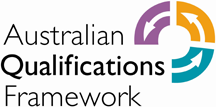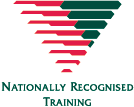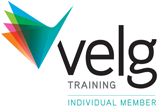Andrea Harris has over 30 years of experience working in the Australian education sector. This has included teaching and research within the university environment, as well as teaching and high-level management within the vocational education sector. More recently Andrea has worked on a broad range of educational projects in her capacity as an independent consultant. Andrea is currently the CEO of the Australian Qualifications Institute (AQI). Andrea writes a series of blogs here on ‘Disruption’ to Education.
Education like most industries is facing disruption. This is a major issue particularly for higher education where so much of it is tied to old structures in terms of infrastructure, curriculum and qualifications, not to mention the over reliance on ‘tradition.
Disruption is being driven by broad technological change and globalisation. These factors have given rise to rapid and accelerating changes in the job market and need for us to all regularly update our skills and knowledge. We no longer take a degree and are ‘qualified’. More and more we need to update our skills and knowledge to stay relevant in our field and to create a portfolio of skills and knowledge to carry across varying roles and industries. After all we can no longer base our future on ‘one’ career – we are all looking at careers in multiple roles and varying industries.
So how are education bodies preparing for these changes?
Traditionally, education bodies such as universities determined what the market should learn with some push from industry. Vocational education providers are more responsive to industry needs but not always the needs of the individual to stay relevant across different industries.
This slow response structure needs to be transformed to cope with what the rapidly changing market needs, and educators are not always in touch with these changing needs.
Consider the following factors which will increasingly influence us as individuals and the education sector as a whole:
- 40% of jobs in the next 10-25 years are likely to be automated (1) raising the demand for training in new skill sets.
- Two thirds of new jobs in the next five years are expected to come from only five industries and one of these industries is Education (2).
- Careers have moved from being linear to matrix requiring people to carry a portfolio of skills and knowledge, which need regular update.
- Casualisation of the workforce is limiting business commitment to provide training, placing more responsibility on the individual to keep their own portfolio of skills and qualifications current.
To adjust to this rapidly changing work environment, as individuals we less and less look to an education institution but turn to the internet.
For example, to use a new IT package we do not necessarily go and complete a ‘course’. We search for the specific information we need via the Internet.
The next article focusses on this shift to the internet and increasing role for education institutions to assess rather than teach and assess. Are our education institutions ready for this?
CEDA. Australia’s future workforce? 2015, Http://adminpanel.ceda.com.au/FOLDERS/Service/Files/Documents/26792~Futureworkforce_June2015.pdf
Jobs Growth in Queensland; Trends and prospects, 2016


